‘You Must Become the Voice Every Day’: Protect Trans Women Day of Action in D.C.

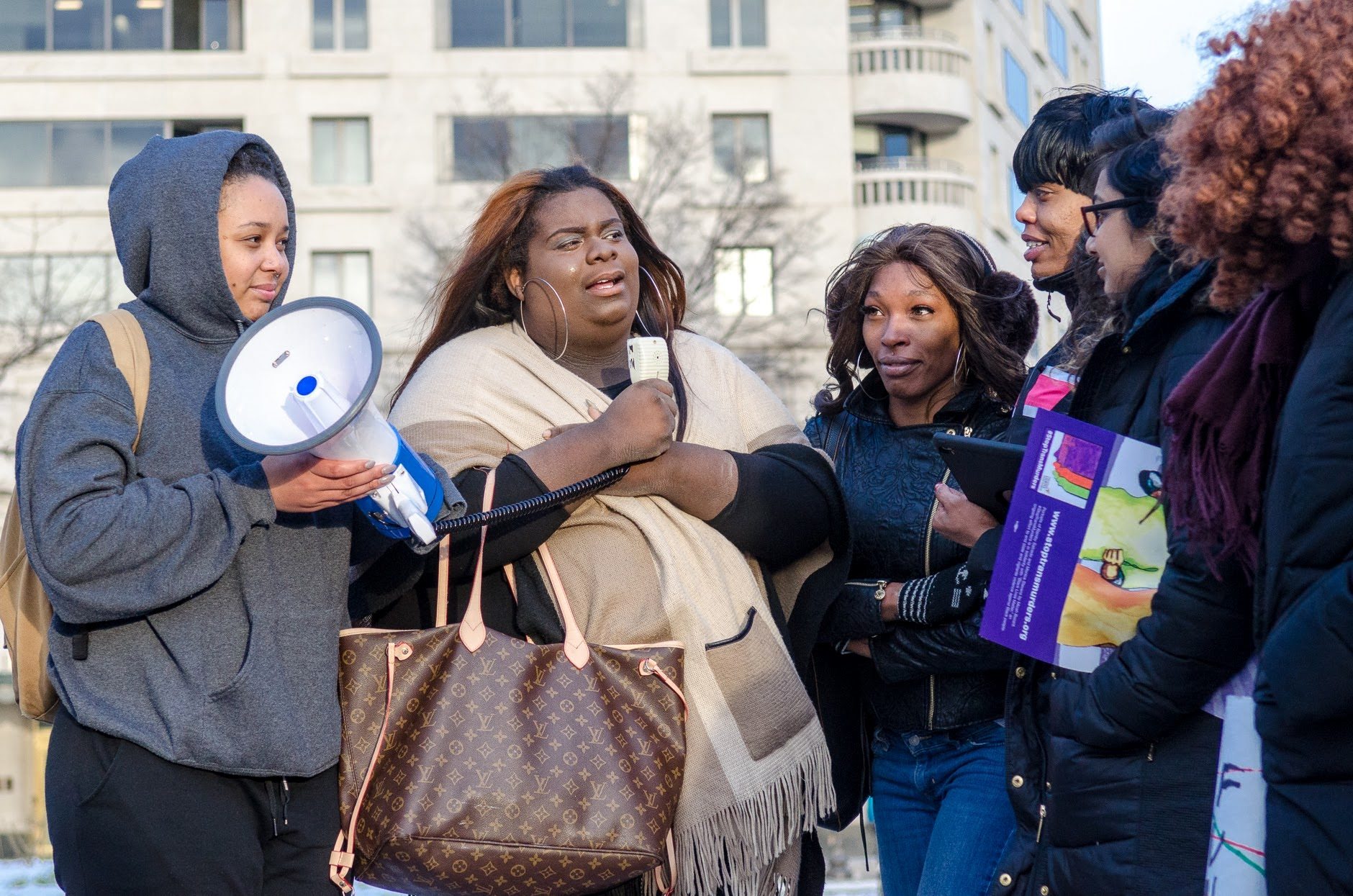
Lauryn Gutierrez/Rewire
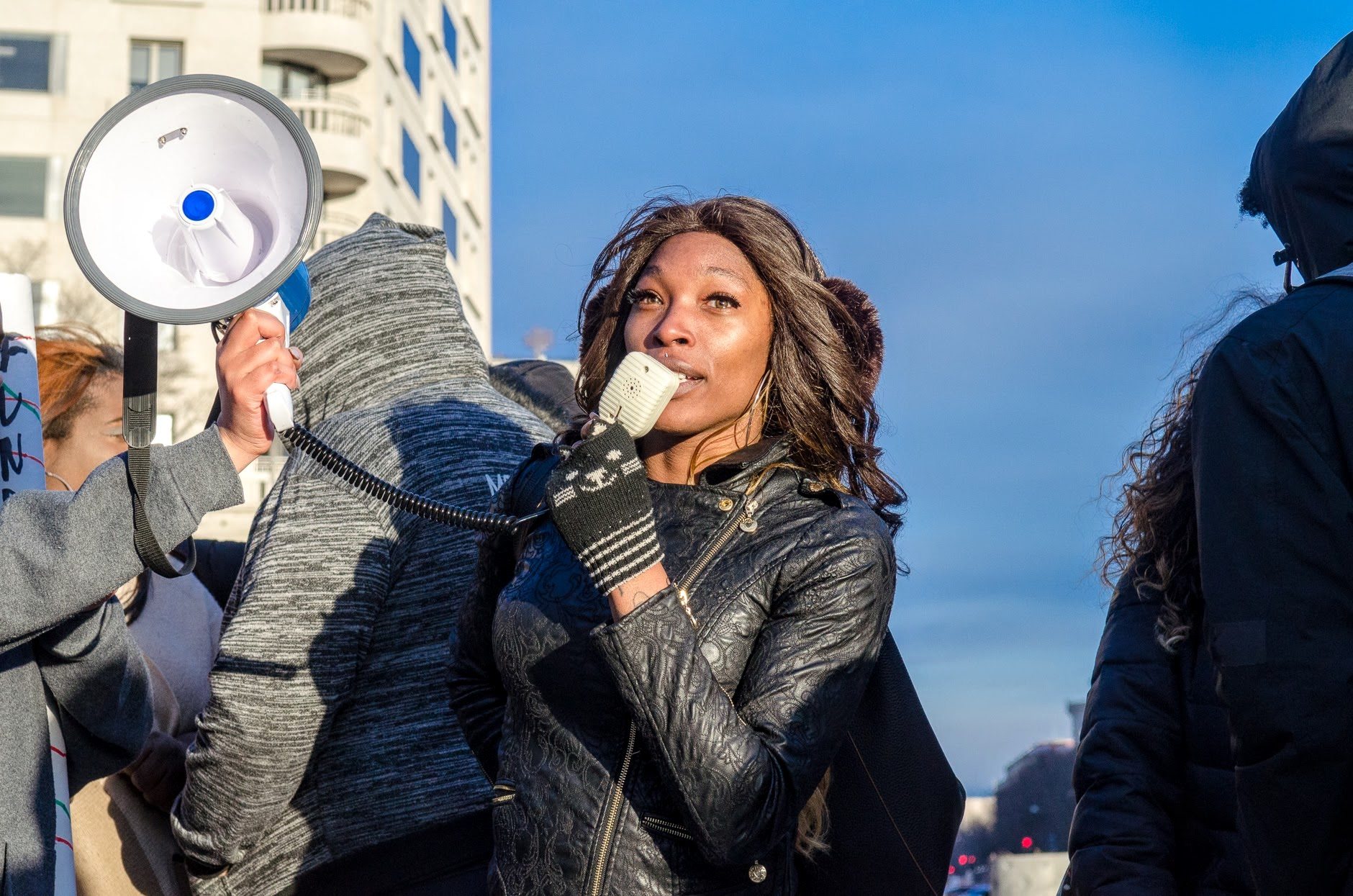
Lauryn Gutierrez/Rewire


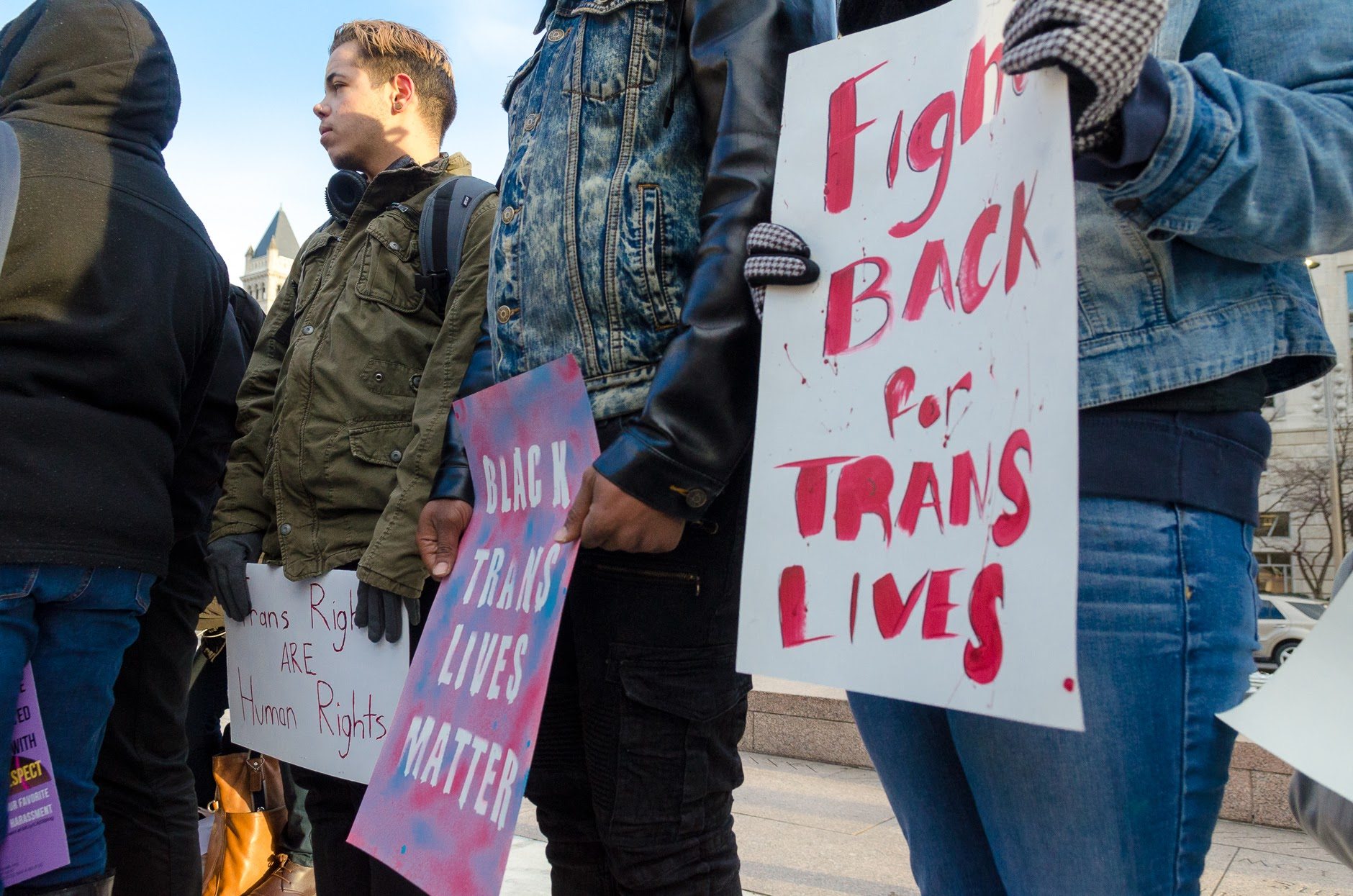
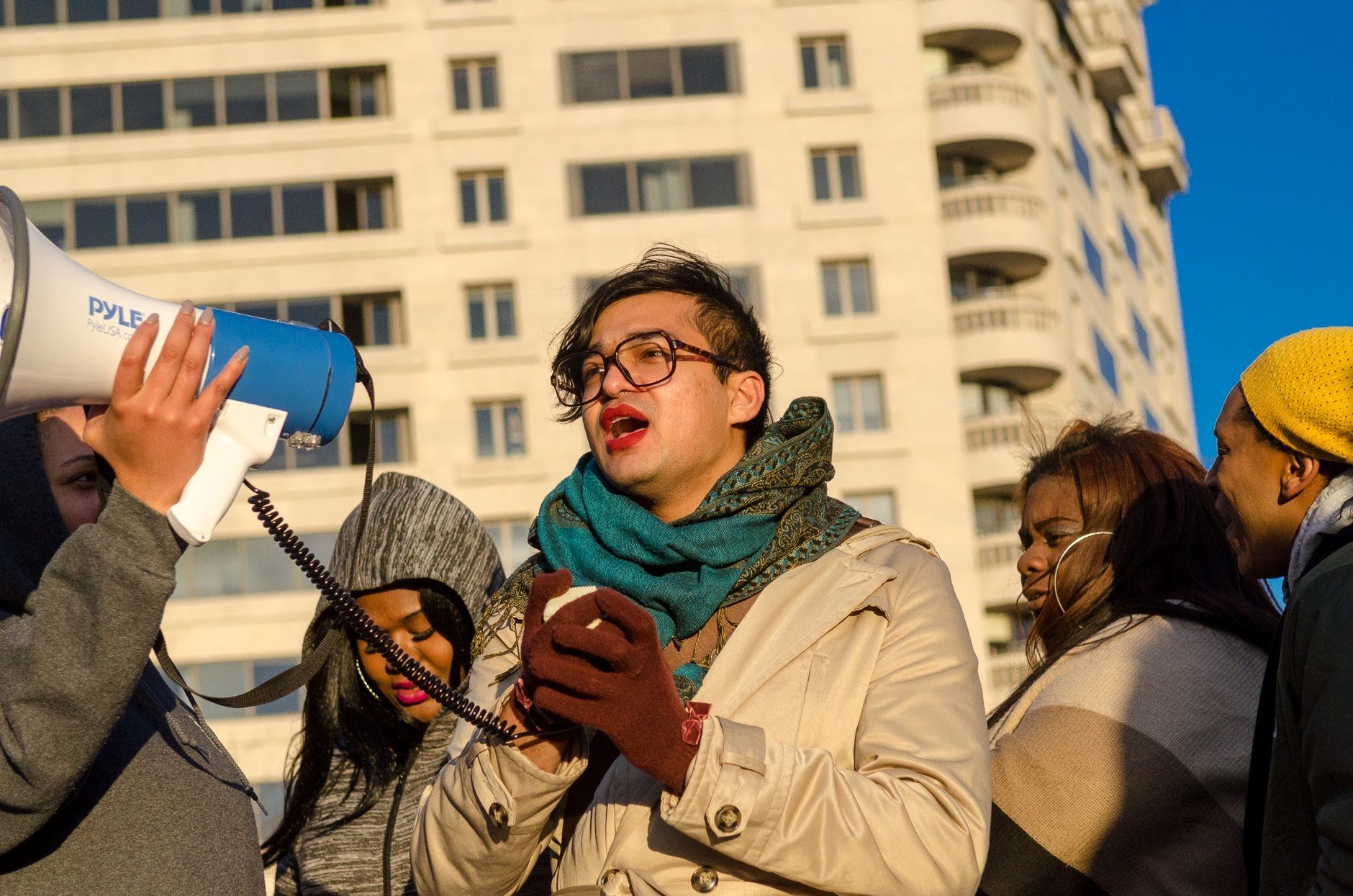
"Right now, there are people who want to make [Islam] a wedge issue, who believe [Muslims] don't stand in solidarity. But I'm here to fuck up that narrative, because we are here together. We stand in solidarity. And I am proud to be here because my liberation is tied up with everyone else's liberation over here. I am here to celebrate the joy of Black transgender lives. I am not waiting for one more person to die before Black transgender lives matter to me." Lauryn Gutierrez/Rewire
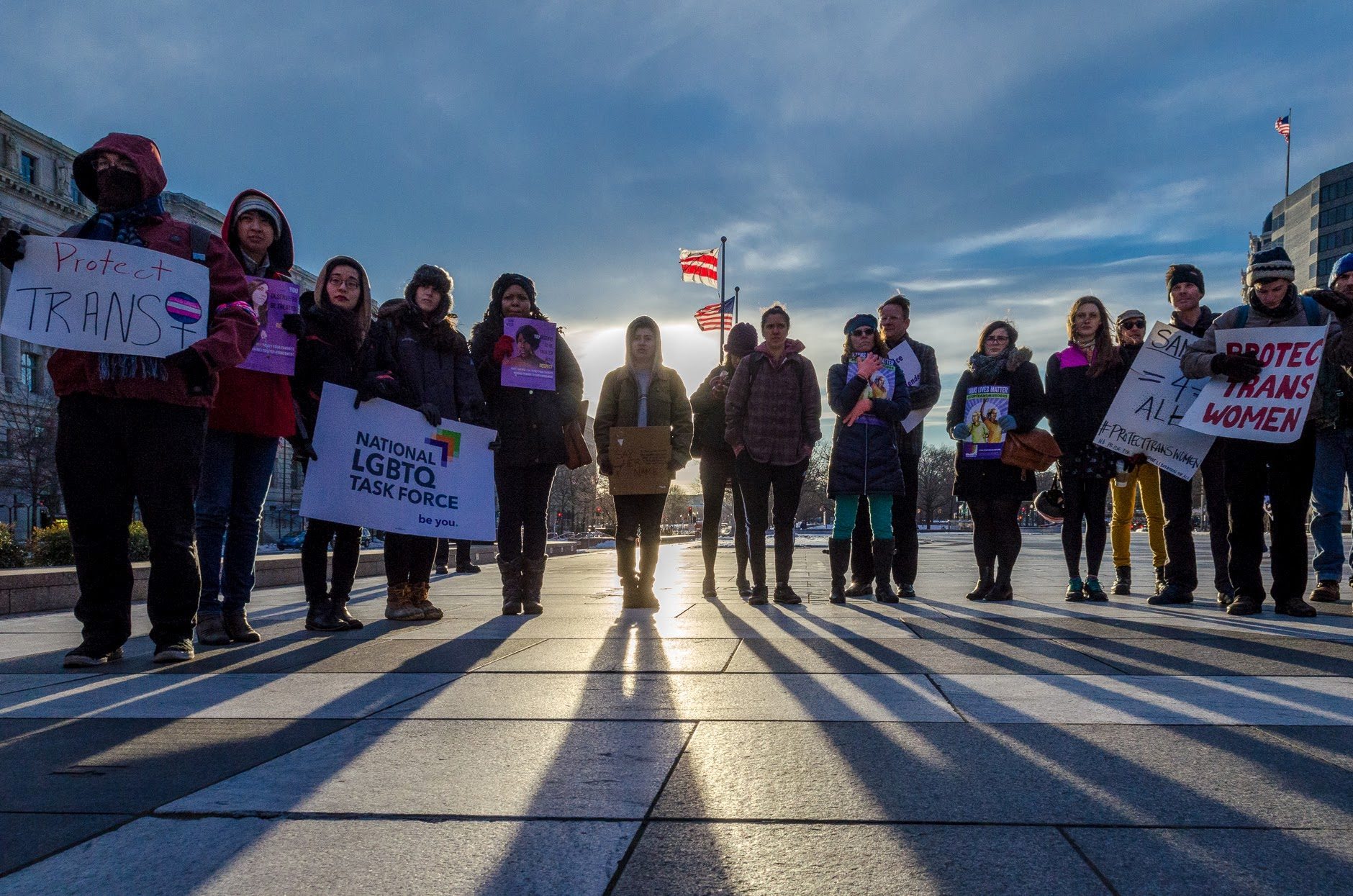

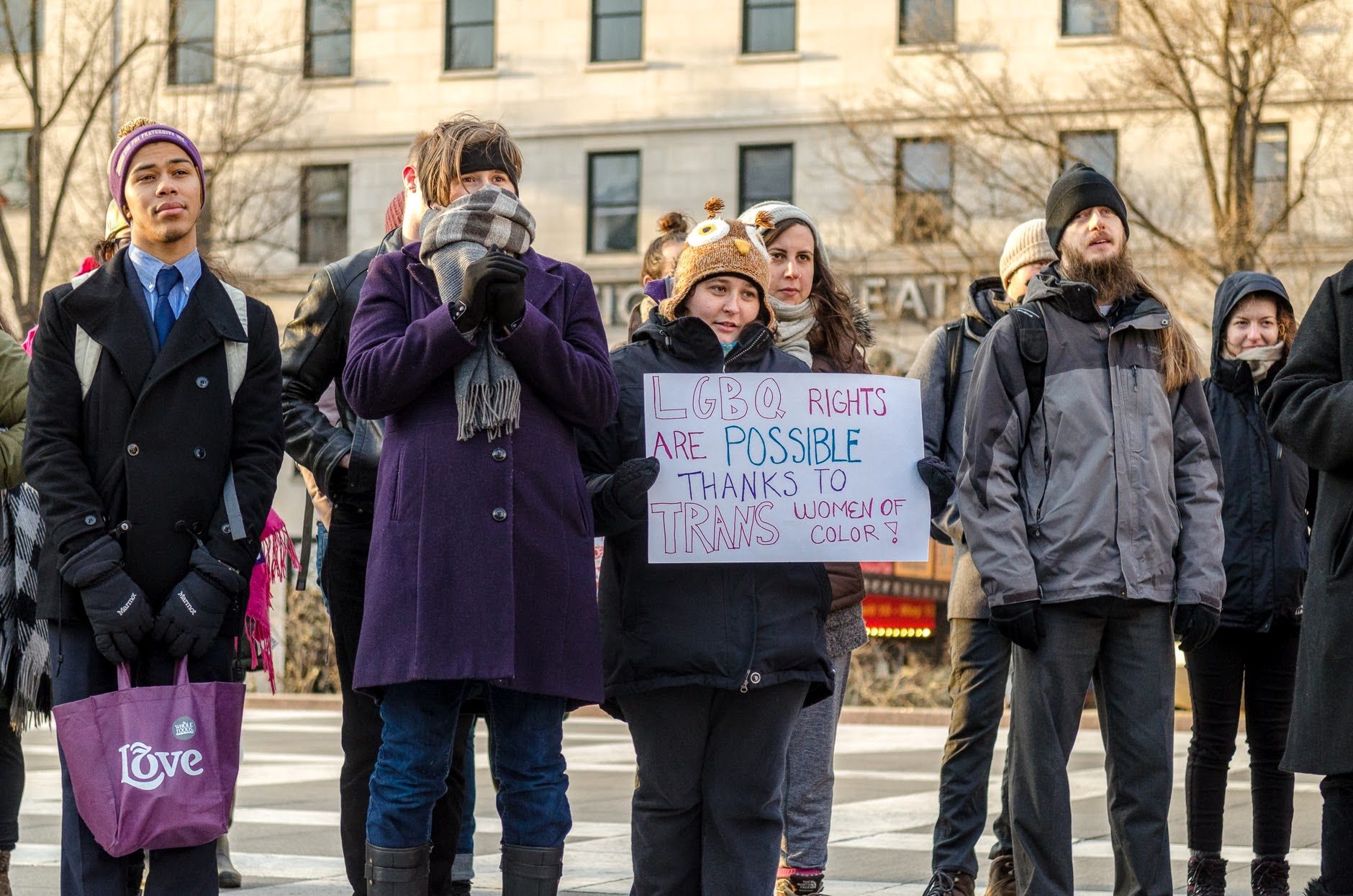
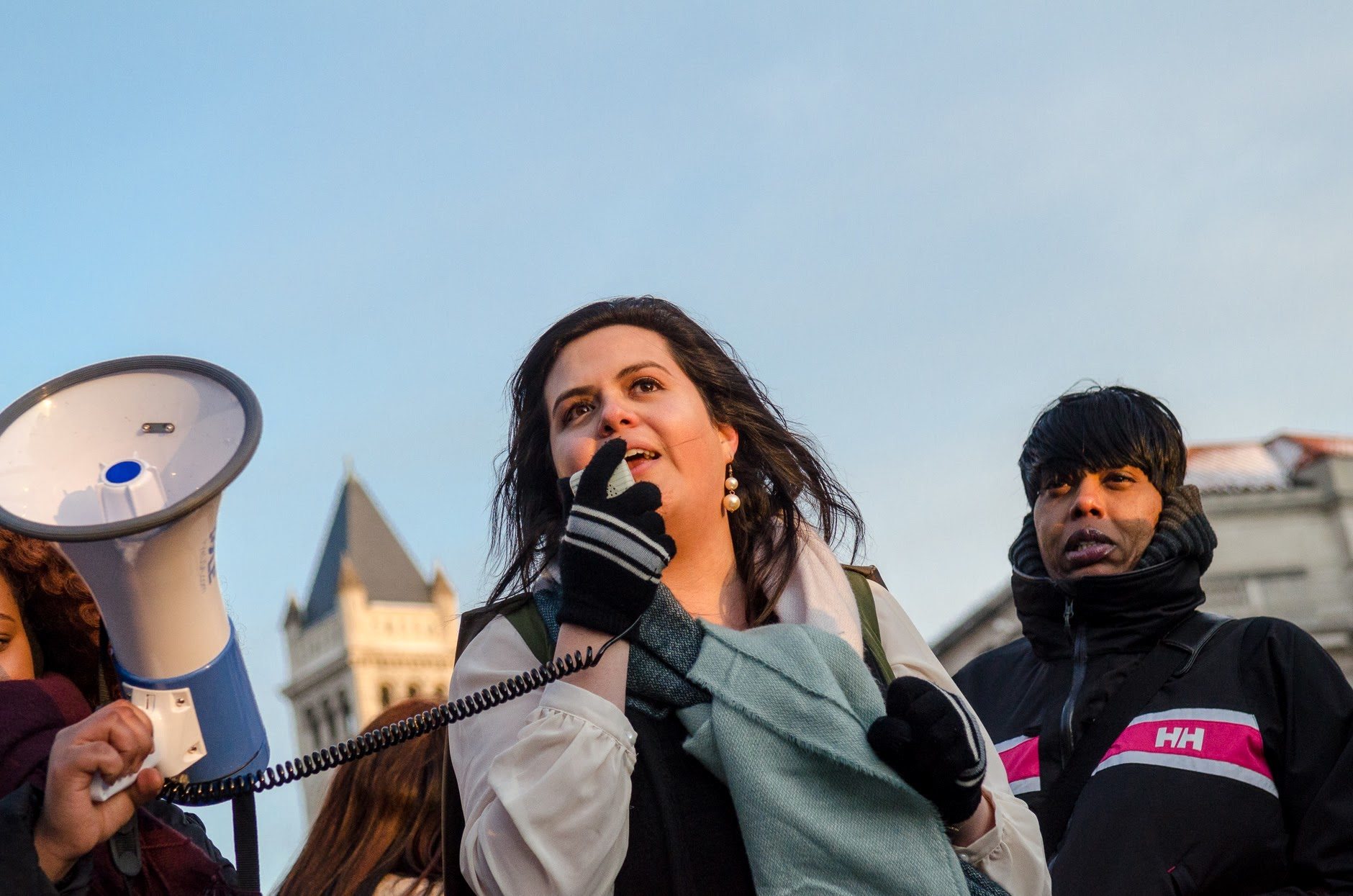
"There are 400,000 undocumented Black immigrants in this country, thus, immigration is a Black issue," said Velasquez. "With over 80 countries criminalizing people based on sexual orientation and gender identity, do not act surprised when you see Black trans people migrating into this country and who are undocumented and need your support." Lauryn Gutierrez/Rewire
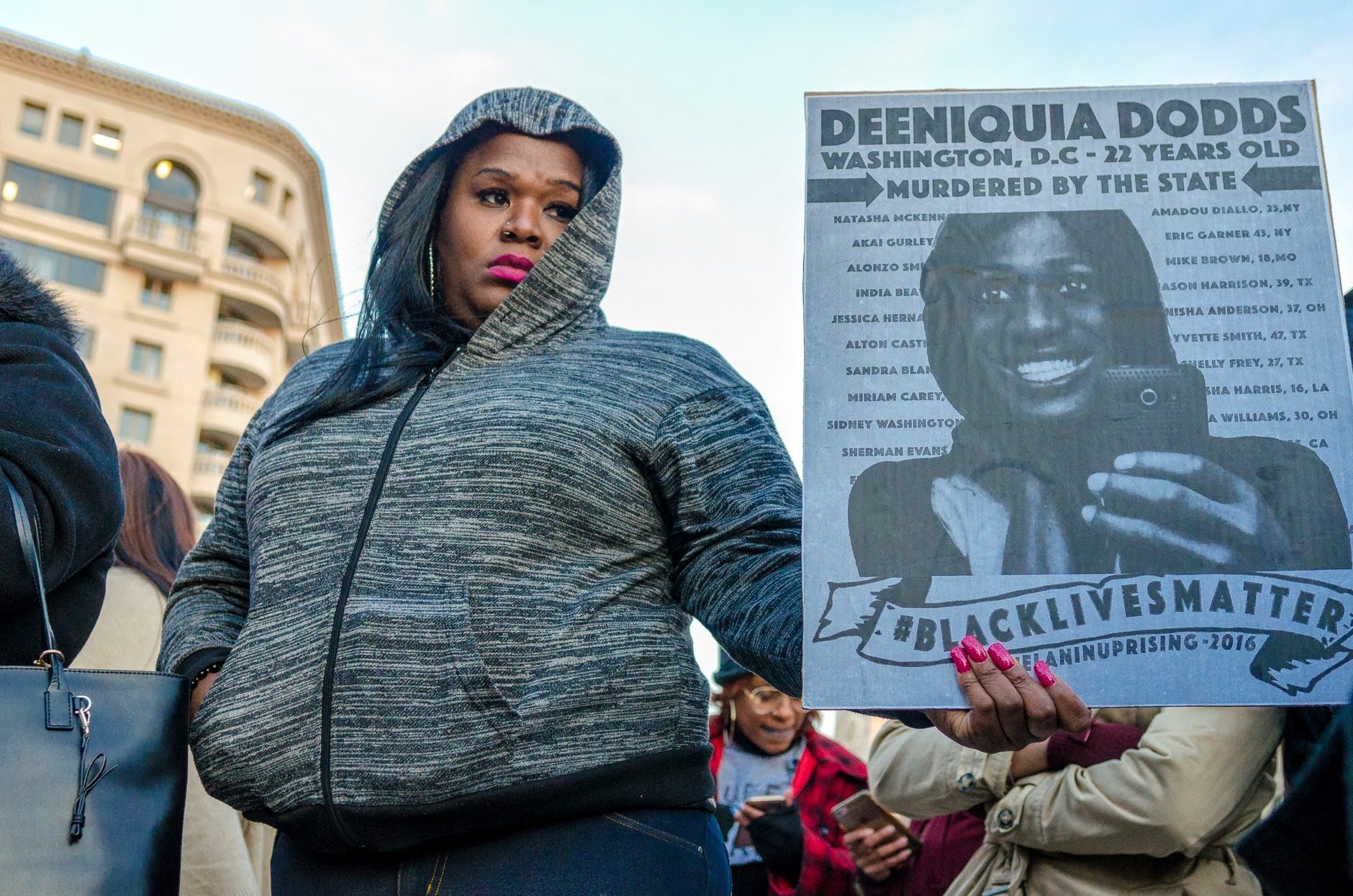
Dodds was involved with Casa Ruby prior to her death and is sorely missed. "We are here for the Dee Dees, for the Yukias, for the Stephanies, who never had a chance to thrive," said Ruby Jade Corado (not pictured), founder of Casa Ruby, which is now the largest employer and the largest housing provider for Black trans women. "Many of them die under the age of 25. So this is a reminder why our work is never done." Lauryn Gutierrez/Rewire
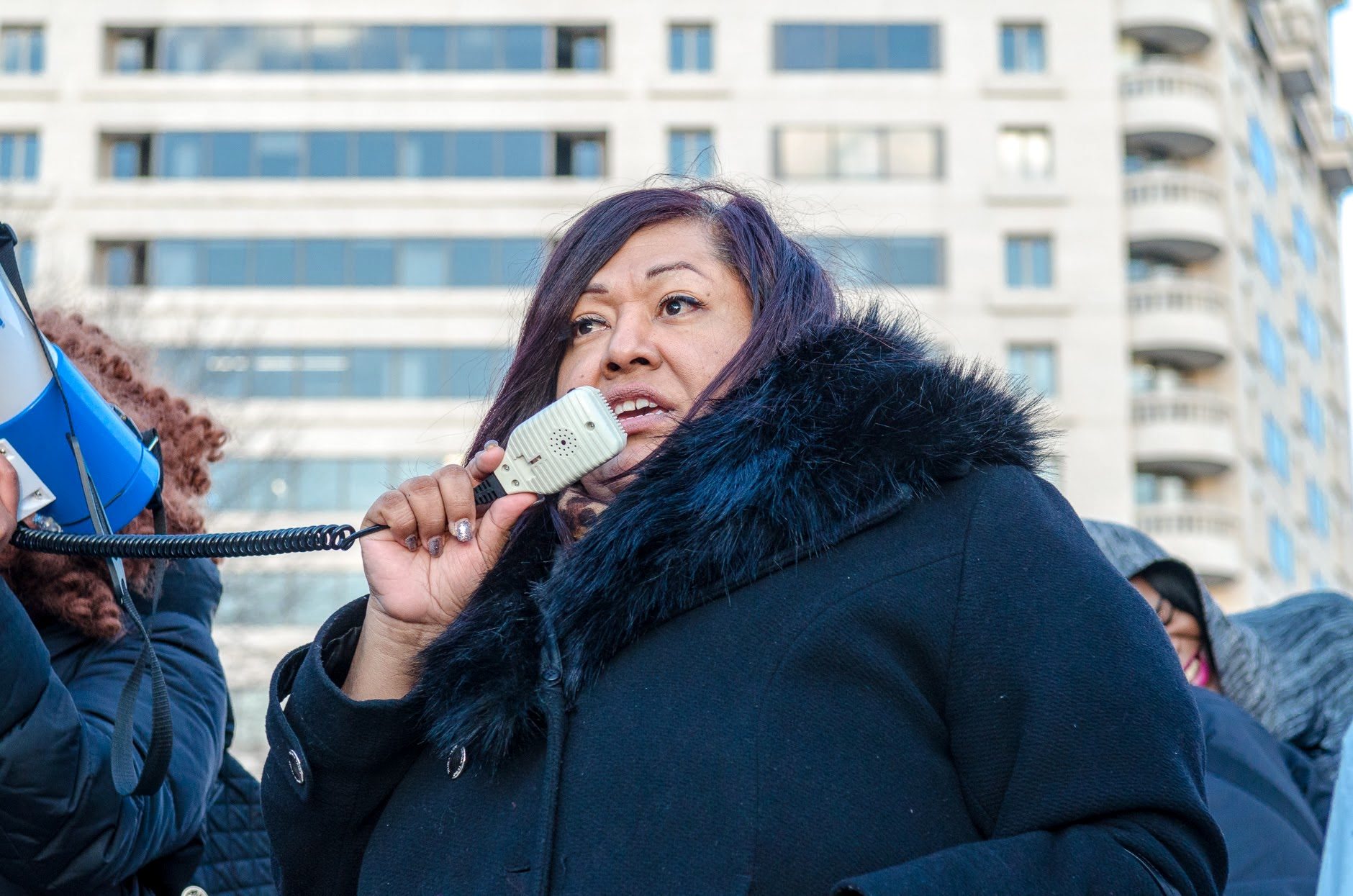
"Become the voice for the women who are still afraid to speak up," she urged those gathered. "Become the voice of the women that are behind those signs that you created today, because I know all of you came here to stand up for something. It does not end here. You must become the voice every day." Lauryn Gutierrez/Rewire
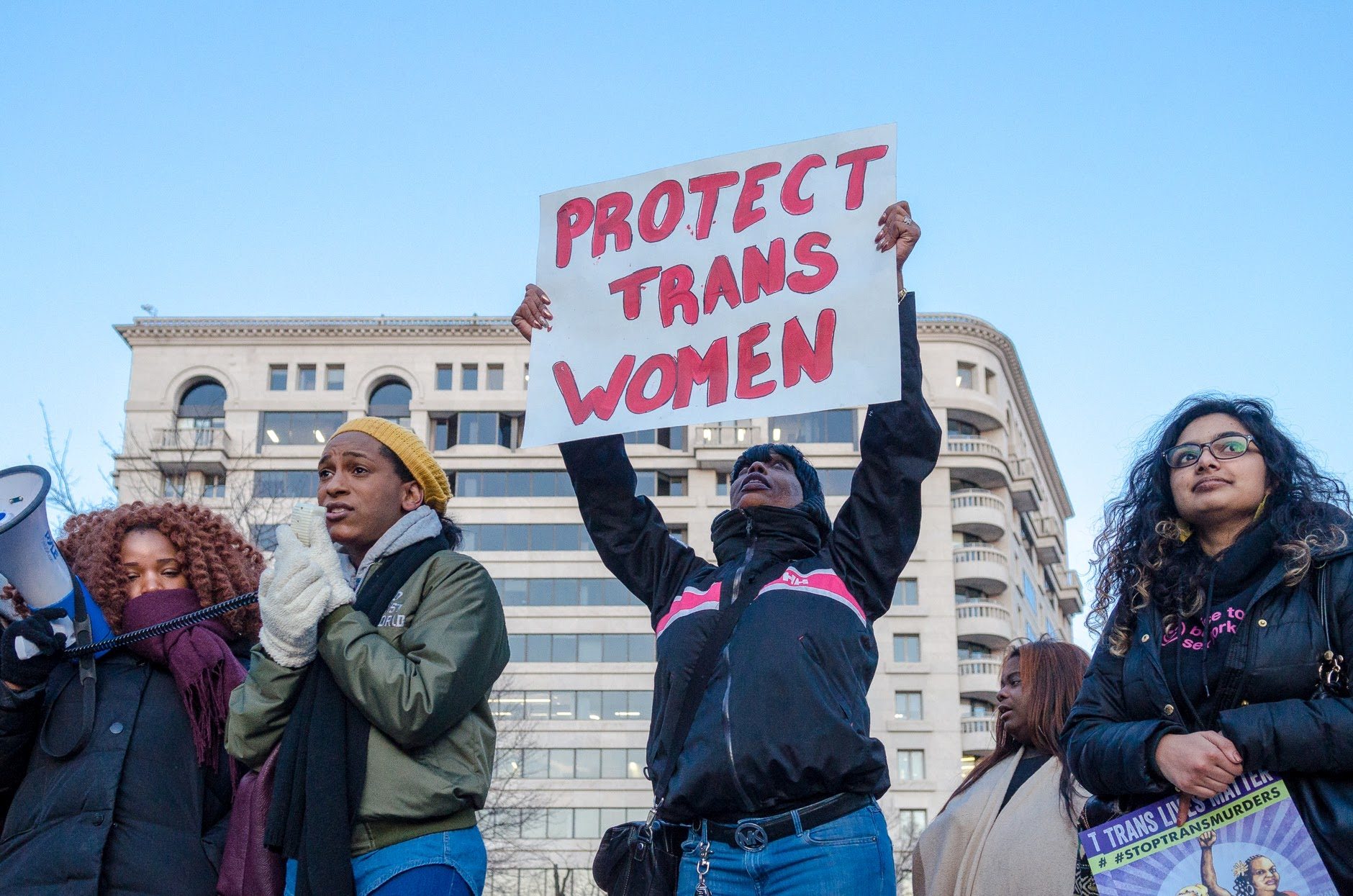
"Folks are here because our lives depend on it. Do the work of resistance so that no other trans women have to be back here begging and pleading for you to honor us." Lauryn Gutierrez/Rewire
Wednesday was declared a National Day of Action to #ProtectTransWomen—particularly those of color—by LBGTQ equality organization GetEQUAL.
Washington, D.C., has one of the largest LGBTQ communities in the country, and has the highest population of transgender individuals in the United States. Transgender advocates from Casa Ruby, HIPS, and the Marsha P. Johnson Institute led a rally that evening in Freedom Plaza to highlight the dangers faced by trans women and femmes, especially those of color.
Earlier in the day, advocates went to D.C. City Hall to request more accessible housing for the trans community. According to a DC Trans Coalition survey, 37 percent of transgender Washingtonians were homeless in 2015.
